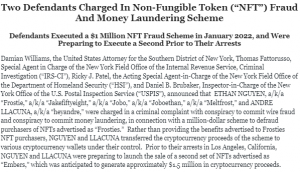Columnist Bobby Lyons outlines the ways in which search engine optimization (SEO) is critical in building and defending your brand’s reputation online.

Let’s face it — if you have worked in the industry for a while, you are aware that a stigma has existed around SEO for years. In addition to putting your site at risk for a manual penalty, questionable SEO practices can tarnish a brand’s reputation. Those of us who have properly applied SEO principles and committed to protecting our brands have gotten a bad rap due to others that have misapplied SEO for their clients or companies.
Running an enterprise SEO program for an established brand requires that one acknowledge the stigma and place a focus on changing perception. Changing perception requires action, not words. Simply educating the company on the value of SEO, or how SEO can be applied responsibly, is not enough. Strategy alignment, allocation of assigned resources, and a full demonstration of defending and enhancing the brand is critical.
Positioning SEO as brand protection
Iconic brands stand the test of time by placing brand ahead of everything else — so when working with an established brand, one effective way to obtain support for an SEO program is by focusing on brand protection rather than potential traffic and revenue opportunity.
Explaining the role of SEO in brand protection is a compelling argument for establishing and investing in an SEO program. Position your program as a defender of the brand first and a revenue stream second. Brand recovery opportunities come by at a much lower frequency than revenue opportunities, and single misplacement of priority can be devastating.
Explaining SEO’s role in brand protection
My colleague John Curtis, who runs the day-to-day SEO operations for our team at Walgreens, made an excellent point in a recent discussion about brand protection: If you relinquish your brand story to others, you lose control of the brand and the message.
Customers seek information about your brand, your products and your services. If you fail to provide the resources or answer the questions, someone else will become the source of information about your company. Thus, it’s critical for web properties that you control and manage to appear in search engine results for queries related to your brand. External sources are typically not brand-exclusive, nor do they adhere to the company’s brand guidelines.
When brand term visibility is not a priority for the company, you run the risk of customers being exposed to incorrect information or a misrepresentation of the brand. Allowing external sources to become the source of information about your brand leads to loss in revenue, and potential negative brand experiences.
Companies with brick-and-mortar operations and/or mobile apps have far more SEO touch points where the brand must be protected. Our resident local SEO expert, Kyle Eggleston, explained the impact of local SEO on the brand in a single sentence: “People blame your brand, not Google, when wrong information is displayed in the local search results.”
Eggleston further noted that there is a significant amount of information provided around local search queries that details exactly what customers are looking for in your store, and you can leverage that by making that information more easily accessible.
6 reasons why SEO is critical for brand protection
The next time you find yourself presenting an SEO strategy where you are seeking support from your organization, be sure to include the goals around brand protection in your primary points of discussion. Below is a list to reference that outlines why SEO is arguably the most critical program in terms of protecting the brand online:
- Customers searching for store hours, phone numbers and accurate address information for your physical store location are going to rely on Google’s information. Failing to maintain accuracy and visibility will undoubtedly create friction in the customer journey and will lead to a negative brand experience. Aside from the negative impact at a brand level, failing to work local effectively exposes your customer to options they may not have considered.
- Affiliate programs are a solid source of revenue, and they are a significant source of awareness, but they are not exclusive to your brand. Affiliates are incentivized to obtain a click and drop a cookie. The top affiliates understand they must provide a path to purchase to maximize their traffic and present valid information, but that is at best less than 5 percent of the sites operating as affiliates. SEO teams can work with the affiliate teams to recapture organic traffic where affiliates are not representing the brand well.
- A company’s mobile app may represent a significant effort to improve the shopping experience for its customer, but if a customer cannot find your app, or they find an app in a search that is misrepresenting your brand, this will lead to a negative brand experience.
- Search volume for terms associated to the brand and/or typos related to the brand can become a source of traffic leaks. Individuals who wish to capitalize on (or even harm) your brand can use domains and common typos for your domain as a method of intercepting traffic that was destined for your website. SEO teams can work with your domain manager to outline top search terms that are at risk for interception to ensure appropriate mitigation steps are taken to subvert this activity.
- Internal search works the same as an external search engine. Well-trained SEO teams evaluate site search queries to determine where gaps in expectations around search are occurring. Leveraging your team to apply the same expertise for internal search analysis that they apply to Google can help to eliminate friction in the site experience.
- SEO is not limited to Google, Bing and Yahoo. Anywhere there is a search box or microphone where customers can query information about your brand is within the scope of your SEO team’s responsibility to manage the results. While Google is clearly the top source for queries, the aggregate volume of all the other points of search is significantly higher than Google alone. Investing in SEO provides a method of impacting millions of brand touch points for established brands.
Regardless of your role in the company, be accountable to the brand. If your role is in SEO, reach out to brand managers or marketing executives in your company and solidify your understanding of the brand you are defending. The more the organization is exposed to the role SEO plays in brand protection and brand enhancement, the faster the stigma of “bad for the brand” will disappear.
Some opinions expressed in this article may be those of a guest author and not necessarily Marketing Land. Staff authors are listed here.
Marketing Land – Internet Marketing News, Strategies & Tips
(89)








